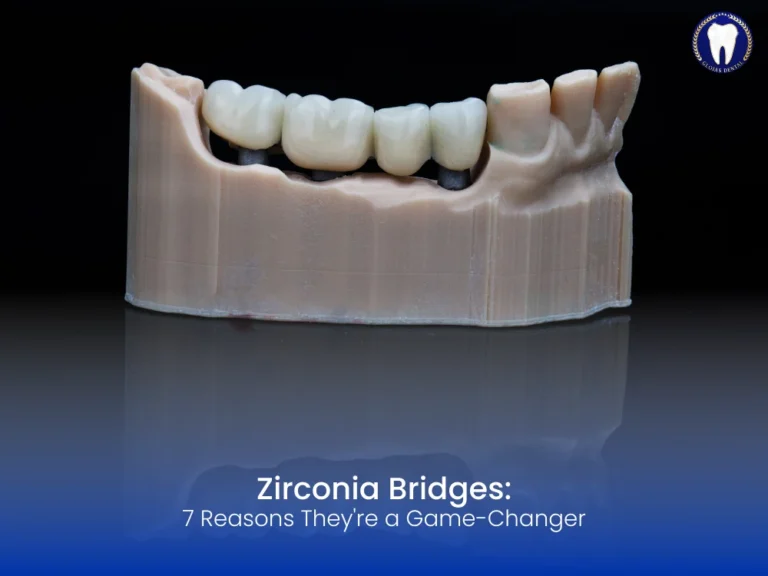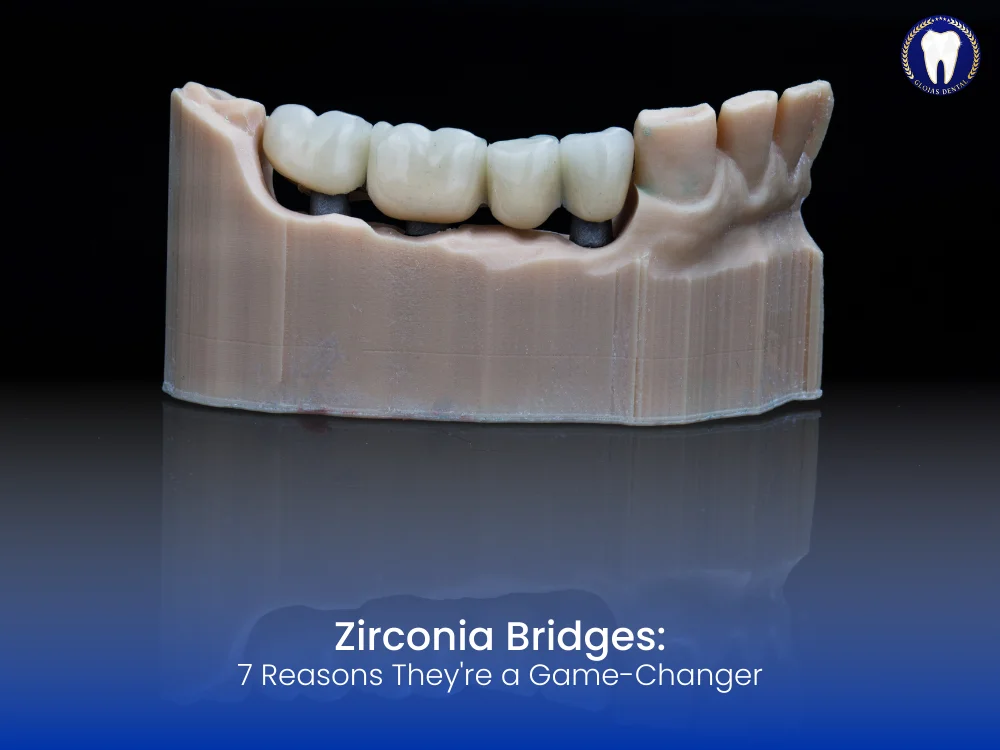Tooth loss can affect more than just your smile — it can impact your confidence, chewing ability, and even the alignment of your remaining teeth. Fortunately, dental restorations like zirconia bridges offer a long-lasting and aesthetic solution to replace missing teeth. These high-performance restorations are gaining popularity worldwide, and for good reason.
In this guide, we’ll break down everything you need to know about zirconia bridges — from what they are, their benefits, costs, maintenance tips, and how they compare to other materials. If you’re looking for a dental solution that’s both durable and visually appealing, this article is your complete resource.
What Are Zirconia Bridges?
Zirconia bridges are dental prosthetics made from zirconium dioxide, a durable and biocompatible ceramic material. These bridges are used to replace one or more missing teeth by anchoring to adjacent teeth or dental implants.
Zirconia is known for its strength, durability, and natural tooth-like appearance, making it one of the most advanced materials used in modern prosthodontics.
Why Choose Zirconia Bridges Over Other Materials?
Exceptional Strength and Durability
Zirconia is one of the toughest dental ceramics available today. It resists wear and fracture, making it ideal for high-pressure areas like molars.
Aesthetic Appeal
Zirconia bridges are tooth-colored and can be customized to match the surrounding teeth. Unlike metal-based bridges, they do not create dark lines at the gum line.
Biocompatibility
Zirconia is non-metallic and hypoallergenic. It is an excellent option for patients with metal sensitivities or those who prefer metal-free dental work.
Precision and Custom Fit
Modern CAD/CAM technology ensures that zirconia bridges are custom-designed for each patient, enhancing both comfort and fit.
Types of Zirconia Bridges
Monolithic Zirconia Bridges
These are made entirely of solid zirconia, offering unmatched durability and are ideal for posterior teeth.
Layered Zirconia Bridges
These combine a zirconia core with a porcelain overlay for enhanced aesthetics, making them suitable for front teeth where appearance matters most.
The Procedure: How Zirconia Bridges Are Installed
The process typically takes two to three visits:
- Initial Consultation and Assessment
- Dental X-rays and 3D scans are taken
- Adjacent teeth are evaluated for strength
- Tooth Preparation
- The supporting teeth are reshaped to accommodate the bridge
- Impressions are taken for design accuracy
- Temporary Bridge Placement
- A temporary bridge is placed while the custom zirconia bridge is fabricated
- Final Fitting
- The zirconia bridge is checked for fit, bite, and aesthetics before being permanently cemented
Who Is an Ideal Candidate for Zirconia Bridges?
Zirconia bridges are ideal for:
- Patients missing one or more teeth
- Those with healthy adjacent teeth or dental implants
- Individuals looking for long-lasting, aesthetic restorations
- Patients allergic to metal-based dental materials
Zirconia Bridges vs. Porcelain-Fused-to-Metal (PFM) Bridges
Feature | Zirconia Bridges | PFM Bridges |
Aesthetics | Superior, no metal lines | Can show metal margins |
Strength | Very high | Moderate to high |
Durability | 10–15+ years | 7–10 years |
Biocompatibility | Excellent | Possible metal allergies |
Cost | Higher | Moderate |
Zirconia bridges offer a clear advantage for patients seeking longevity and visual appeal.
Cost of Zirconia Bridges
The cost of zirconia bridges can vary depending on several factors:
- Number of units involved
- Geographic location
- Clinic and dentist expertise
- Type of zirconia used (monolithic vs. layered)
Estimated Cost: $1,000 to $2,500 per unit in the U.S.
Though more expensive than traditional bridges, many patients find the longevity and aesthetics of zirconia worth the investment.
How Long Do Zirconia Bridges Last?
With proper care, zirconia bridges can last 10 to 20 years or even longer. Their high resistance to fractures and wear contributes to their extended lifespan, making them a long-term solution for tooth loss.
Care and Maintenance Tips
To extend the life of your zirconia bridge:
- Brush twice daily with a soft-bristled toothbrush
- Floss around the bridge using floss threaders or interdental brushes
- Avoid chewing on extremely hard objects (e.g., ice or hard candy)
- Visit your dentist regularly for professional cleanings and checkups
Zirconia resists staining, but good oral hygiene remains critical for gum and overall mouth health.
Potential Risks and Considerations
While zirconia bridges are generally safe and well-tolerated, some potential concerns include:
- Initial sensitivity after cementation
- Rare chance of chipping in layered types
- Not suitable if surrounding teeth are weak
A thorough dental exam can determine if zirconia bridges are the right option for your dental needs.
Zirconia Bridges for Dental Implants
Zirconia is often used to fabricate implant-supported bridges. These are especially beneficial for:
- Patients missing multiple adjacent teeth
- Those seeking non-metal restorations for implants
- Long-term aesthetic restorations with excellent gum compatibility
Zirconia’s smooth surface helps reduce plaque buildup around implants, enhancing oral hygiene.
FAQs About Zirconia Bridges
1. Are zirconia bridges better than metal bridges?
Yes, zirconia bridges offer superior aesthetics, are biocompatible, and have no risk of metal allergies or discoloration.
2. Do zirconia bridges stain over time?
Zirconia is highly resistant to stains, especially compared to traditional materials.
3. Can zirconia bridges be used on front teeth?
Yes, layered zirconia bridges are specifically designed for front teeth due to their natural appearance.
4. Is the procedure painful?
The process is minimally invasive and typically performed under local anesthesia. Patients may experience mild sensitivity afterward.
5. Are zirconia bridges covered by insurance?
Coverage depends on your insurance plan and medical necessity. Some insurers may cover part of the cost.
6. How do I clean zirconia bridges?
Use non-abrasive toothpaste, floss daily, and attend regular dental check-ups to ensure optimal hygiene.

